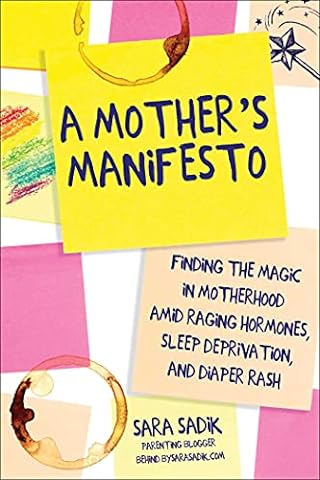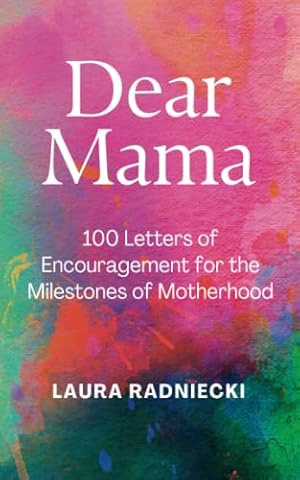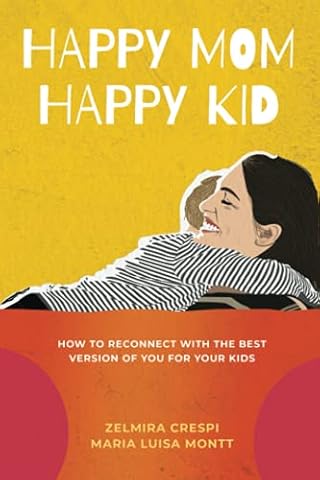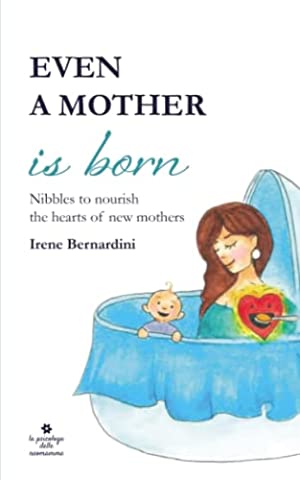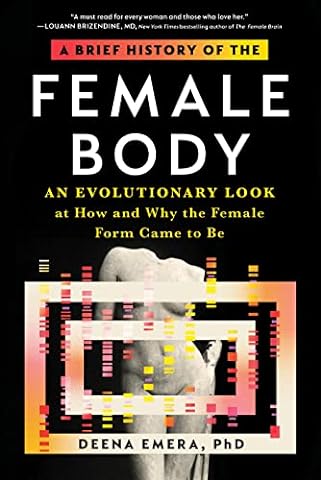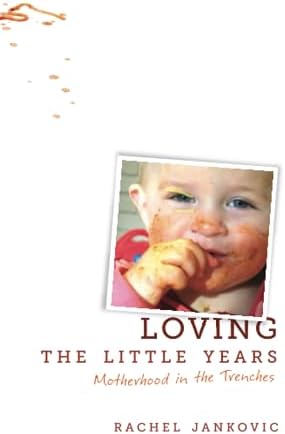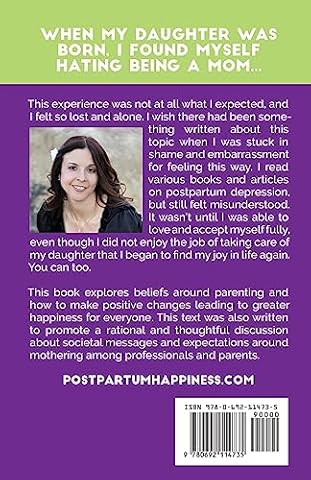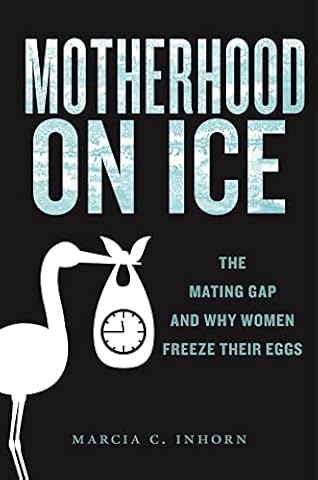
Enjoy fast, free delivery, exclusive deals, and award-winning movies & TV shows with Prime
Try Prime
and start saving today with fast, free delivery
Amazon Prime includes:
Fast, FREE Delivery is available to Prime members. To join, select "Try Amazon Prime and start saving today with Fast, FREE Delivery" below the Add to Cart button.
Amazon Prime members enjoy:- Cardmembers earn 5% Back at Amazon.com with a Prime Credit Card.
- Unlimited Free Two-Day Delivery
- Streaming of thousands of movies and TV shows with limited ads on Prime Video.
- A Kindle book to borrow for free each month - with no due dates
- Listen to over 2 million songs and hundreds of playlists
- Unlimited photo storage with anywhere access
Important: Your credit card will NOT be charged when you start your free trial or if you cancel during the trial period. If you're happy with Amazon Prime, do nothing. At the end of the free trial, your membership will automatically upgrade to a monthly membership.
Buy new:
-41% $14.08$14.08
Ships from: Amazon Sold by: SUNSHINEBOOKS1144
Save with Used - Good
$7.99$7.99
Ships from: Amazon Sold by: Zoom Books Company
Learn more
0.79 mi | San Francisco 94103

Download the free Kindle app and start reading Kindle books instantly on your smartphone, tablet, or computer - no Kindle device required.
Read instantly on your browser with Kindle for Web.
Using your mobile phone camera - scan the code below and download the Kindle app.

The Mask of Motherhood: How Becoming a Mother Changes Our Lives and Why We Never Talk About It Paperback – May 1, 2000
Purchase options and add-ons
- Print length266 pages
- LanguageEnglish
- PublisherPenguin Publishing Group
- Publication dateMay 1, 2000
- Dimensions5.06 x 0.65 x 7.75 inches
- ISBN-100140291784
- ISBN-13978-0140291780
Products related to this item
Editorial Reviews
About the Author
Excerpt. © Reprinted by permission. All rights reserved.
The Mask of Motherhood
How Becoming a Mother Changes Everything and Why We Pretend It Doesn'tBy Susan MaushartPenguin Books
Copyright © 2000 Susan MaushartAll right reserved.
ISBN: 0140291784
Chapter One
Faking Motherhood
The Mask Revealed
* * *
Oh Mother, was it tender to tell me nothing of what was to come and what it meant: about marriage, motherhood, death? Tender not to whisper to me even once about resistance or escape, about honor and freedom?
?Phyllis Chesler
All masks are props for pretending. Theycan be tragic or comic, serenely composed or agapewith horror. Yet every mask, regardless of the contentof its expression, projects uniformity, predictability, stasis.Which is why, of all the many kinds of masks in theworld, there is no mask of ambivalence or of metamorphosis.Masks portray emotion inert and unmixed in a trade off ofrange for impact.
At the same time?and for the very same reasons?weneed our masks. Or at least we need some of them, some ofthe time. For all human beings, but perhaps especially so forthose inhabiting complex urban environments, social masksare an indispensable accessory in our emotional wardrobe.Indeed, a person incapable of masking her "true" feelings isoften (and quite rightly) regarded as immature, sick, orboth. To a very considerable degree, what we call self-controldepends on our ability to "mask," to deny and represswhat we experience, to misrepresent it, even toourselves.
Although he is deeply misunderstood on this point, it wasFreud who pointed out the multiple dividends such repressioncan pay. Our facility with masks, he argued, has madepossible the very infrastructure of our collective lives, whichhe called "civilization." It is difficult to dispute the point.The capacity for emotional make-believe, for pretense, forthe construction of situationally appropriate masks, is perhapsour most enduring evolutionary advantage. It is alsoour greatest curse. The critical distance, it seems to me, liesbetween self-control and self-delusion.
The mask of motherhood refers to a repertoire of sociallyconstructed representations that have crossed that line.What I am calling the mask of motherhood is in fact anassemblage of fronts?mostly brave, serene, and all-knowing?thatwe use to disguise the chaos and complexityof our lived experience. Like all social masks, the mask ofmotherhood is an invaluable means for organizing and domesticatingthe more rapacious aspects of the realities weconfront. Yet the personal and political price we pay for thiscontrol has far exceeded the value of its social dividends.
The mask of motherhood is what keeps women silentabout what they feel and suspicious of what they know. Itdivides mother from daughter, sister from sister, friend fromfriend. It creates an abrupt and tragic chasm between adultswho have children and adults who don't. It distorts the distancebetween childhood and adulthood, cutting ever deepergaps between the generations. It pits male parents againstfemale, amplifying the disjuncture between the verbs "tomother" and "to father." Above all, the mask of motherhood,by minimizing the enormity of women's work in theworld, nourishes and sustains the profound ignorance thatconfuses humanity with mankind.
We see the mask of motherhood in
* the values of a culture that glorifies the ideal of motherhood but takes for granted the work of motherhood, and ignores the experience of motherhood
* media images of Supermom, complete with briefcase, "serious" hair, and a pair of designer-clad preschoolers scampering happily to help with the dishes
* the secret worry of the new mother that "I just wasn't cut out for this"?and the gnawing fear that it shows
* books that describe labor contractions as "forceful urges"
* the apologetic tones of the embarrassed mother who murmurs over the screams of her toddler's tantrum, "She's not normally like this ..."
* breast-feeding propaganda that portrays bottle feeding as a form of child abuse
* women's magazines that promise "Great Sex after Baby!"
* child-care manuals that imply that "easy" babies are made, not born, and that an infant's digestive tract is somehow linked by fiber-optic cable to its mother's state of mind
* the grim one-upmanship of play-group moms comparing relative rates of vegetable consumption and verbal development
* the tolerance of women for the selective deafness of fathers at 3:00 A.M., especially in the belief that "a man needs his sleep" so he can "go to work in the morning"
* debates about child care that pass judgment on "what's best for the child" as if a child's needs were separable from those of its mother, father, and siblings
* the smugness of the mother at-home who looks with disdain on her sisters in the workforce
* the smugness of the mother in the workforce who looks with disdain on her sisters at-home.
I was recently asked to speak to a group of undergraduatesociology students about my research into the meaning ofcontemporary motherhood. I started by dividing the groupinto two teams: parents and non-parents. I asked them to siton opposite sides of the lecture hall, leaving a gap of emptyseats in the middle. "Do you believe there is a `great divide'separating parents from non-parents in our society?" Iasked. "That people who have children are fundamentallydifferent from people who don't have children?"
I asked the non-parents to comment first. "Of course not,"explained one young woman. "Having a child doesn'tchange who you are as a person." Her fellow teammatesnodded in agreement, despite the stifled groans and gigglesfrom the other side of the room. I called for a vote and foundthe vast majority of non-parents rejected the notion of agreat divide.
I addressed the same question to the parent group. Or Ishould say, I tried to. Before the words were out of mymouth, people were fairly shouting their responses: "Absolutely!""You better believe it!" "YES!" Most of the peopleon this team happened to be women, and they proved by farthe most vocal contingent. "Let me tell you something," onefortyish woman began, "Not only is there a great divide betweenthose who have kids and those who don't, but there'sa conspiracy about keeping the whole thing a secret." Anotheradded, "Yeah, and by the time you figure it out, it's toolate!" With this, the parenting team exploded in laughter.
The non-parents were slightly nonplussed. And whocould blame them? What the parent group had to saysounded positively sinister, yet there they were, cacklingaway gleefully and starting to trade wisecracks. Within afew more moments, they were beginning to sound like agroup of old army buddies reminiscing about life in thetrenches. I didn't even bother taking a vote. The consensuswas clear, and it was total.
To me, this scene was forceful illustration of two truthsabout contemporary parenting. The first is that yes, Virginia,there does seem to be a great divide between parentsand nonparents in our society: becoming a parent doeschange you in significant and irreversible ways into a differentperson. And the second is that admitting as much publiclymeans breaking one of our society's most enduringtaboos. To tell the truth (or some of the truths) about motherhoodto non-mothers, we seem to feel, would be a bit likedebunking Santa Claus on the front page of the New YorkTimes. There's no disputing the facts, but you'd have to be apretty bad sport to go around advertising them, wouldn'tyou? What's more, the odds are good that the naive audiencefor whom such revelations would be "news" might neverbelieve them anyway.
For the uninitiated, the realities of parenthood and especiallymotherhood are kept carefully shrouded in silence,disinformation, and outright lies. The conspiracy of silenceis real, and it's documentable. That much is clear. What ismuch less clear is what purpose the conspiracy serves, andWhy the vast majority of women participate in it.
What I am calling the mask of motherhood is the outwardand visible sign of this silent conspiracy?the publicface of motherhood that conceals from the world and fromourselves the momentousness of our common undertaking.The mask of motherhood is what mutes our rage into murmursand softens our sorrow into resignation. The mask ofmotherhood is the semblance of serenity and control thatenables women's work to pass unnoticed in the larger dramaof human life. Above all, the mask keeps us quiet about whatwe know, to the point that we forget that we know anythingat all ... or anything worth the telling.
At the same time, the mask of motherhood is a usefulcoping mechanism. Yet the danger?and it is one to whichwomen are particularly prone?is that the make-believecan become so convincing that we fool even ourselves.When the coping mechanism becomes a way of life, we divestourselves of authenticity and integrity. We diminishour knowledge, our power, our spirit as women. Ultimately,we no longer make a life?we fake a life.
Psychologist Harriet Goldhor Lerner believes that "pretendingis so closely associated with femininity that it is,quite simply, what the culture teaches women to do." Yetwomen themselves are clearly co-conspirators in perpetuatingthe grand illusions of femininity, and the mask of motherhoodis no exception. The mask is a disguise of our ownchoosing, a form of personal armor that, as Lerner pointsout, ensures the viability of the self as well as our relationships.Pretending, in other words, is a form of self-protection.From this point of view, the mask of motherhoodis like a camouflage, rendering our experience safely indistinguishablein a hostile environment. As Lerner writes,"Pretending reflects deep prohibitions, real and imagined,against a more direct and forthright assertion of self."
For the present generation of women, the mask of motherhoodis among the most deeply repressed and destructiveof all female deceptions. Today, women confessguiltily?or gleefully?to faking orgasms. Yet how manyof us will admit, or are even aware, that we are faking motherhood?As Lerner points out, when we fake orgasm, we deceiveanother. But when we fake motherhood, we betray ourdeepest selves.
The mask of motherhood not only mutes our voices. Italso muffles our ears. Journalist Nina Barrett relates the experienceof a young mother whose marriage is coming adriftin the wild wake of early parenthood. "In some of the mother'sgroups I've joined, I've brought this up in a roundaboutsort of way," she confesses. "But people don't seem to wantto talk about it. I've heard other women make references tosimilar problems. It seems like they're almost bursting totalk about it, but they're embarrassed. Like it's somehowtheir fault. Or maybe they shouldn't be feeling thesethings ..."
The mask of motherhood keeps women from speakingclearly what they know, and from hearing truths too threateningto face. That for every woman who "blooms" in pregnancythere's another who develops root rot. Thatchildbirth?however transcendent or relevatory it may ormay not be?still hurts like hell. That the persistent cry ofa newborn can make your husband's snoring sound like asonata. That your child's physical demands will diminish atonly a fraction of the rate at which her emotional ones willmultiply and intensify. That getting the knack of combiningmotherhood with career is like getting the knack ofbrain surgery: nice work if you can get it, but 99.99 percentof us never will. That having a "joint project" called a babydrives most couples farther apart, reducing intimacy as itreinforces gender-role stereotypes.
It's not as if we enjoy the dishonesty. It's more that weseem to need it. It is scary enough to face the fact that youyourself are faking it. But the possibility that everyone elsemay be faking it too is downright terrifying.
The gap between image and reality, between what weshow and what we feel, has resulted in a peculiar culturalschizophrenia about motherhood. Canadian sociologist AmyRossiter argues that our public discourse on the subject ofmotherhood tells us simultaneously "everything" and"nothing" that we need to know. On the one hand, today'smothers are virtually flooded with "information." On subjectsranging from pregnancy and childbirth to toilet trainingand preparation for preschool?in virtually every massmedium from books, magazines, and pamphlets to hotlines,videos and web sites?we have an unprecedented numberof facts at our fingertips. Yet getting a grip on them seems toget harder and harder. It was Cervantes who remarked that"facts are the enemy of truth." For all the information wehave amassed on "how to do it," we remain more cluelessand insecure about what we are doing and why we are doingit than perhaps any previous generation.
Anthropologist Sheila Kitzinger has pointed out that themedia bombard mothers with advice on health care, self-care,and the maintenance of relationships: how to lookgood, feel good, and be assertive; how to "keep the romancein her relationship with her man, cook gourmet food andproduce candlelit dinners, and at the same time be a perfectmother." Women's magazines, child-care manuals, andparenting classes dispense "tips" on every aspect of motheringfrom toilet training to postnatal depression. "But the imageof motherhood that is presented is a false one," Kitzingerconcludes. "A woman who catches sight of herself in themirror"?as it were, unmasked?"sees a very differentpicture. And the message is clear: she is a failure."
Quite simply, what we see of motherhood is not what weget. As a result, the conviction that we are not measuring upbecomes almost inevitable. Women's magazines, with theirrelentless emphasis on "personal development," "success,"and "achievement," depict a version of motherhood asglossy as any pin-up?and about as representative.
A generation ago, Betty Friedan described what happenedwhen one such magazine invited readers to respond tothe topic "Why Young Mothers at Home Feel Trapped."When the editors had finished digging their way out fromunder the twenty thousand responses, they wondered if theymight have touched a nerve. Twenty-five years later, thereis a new generation of young mothers, and many of them arenot "at home" at all, at least not exclusively. Yet for manywomen the perception of entrapment remains, along withthe sense that life is somehow living them instead of viceversa. The fit between our images of motherhood and therealities we confront is more uncomfortable than ever.
Basically, we have swapped our old set of stereotypes for anew and improved set. In traversing the distance betweenJune Cleaver and Murphy Brown, we've come a long way,baby, without making any appreciable progress at all. Today'smedia no longer glorify the housewife. Instead, thespotlight has shifted to the celebrity Supermom, She-who-has-it-all.The headlines tell us "Celebrities' Lives ChangeCompletely After They Give Birth." Kathleen Turner volunteersfor library duty at her child's school. Meg Ryantakes her kids along on shoots. Julie Walters's newly delivereddaughter smelled so "divine" that she "wanted to lickher all over." With such tales of metamorphosis to sustainus, it's no wonder we're starving to death. Such images arethe maternal equivalents of Playboy bunnies, nicely proportionedlives with soft curves in all the right places. Troubleis, they bear about as much relation to reality as a backlit,airbrushed cleavage does to a set of lactating glands withcracked nipples.
Meanwhile, as Susan Sarandon breast-feeds her daughterduring an important interview, researchers in the UnitedKingdom are working on a slightly different angle. Theyfind that fully half of all mothers with kids under five yearsold experience symptoms of intense emotional distress on aregular or continual basis; that women are five times morelikely to be diagnosed as mentally ill in the year after theirfirst child's birth than at any other time in their lives. Asone mom who has never starred in anything told researcherand parenthood educator Margaret Gibson, "Every motherdoes not cope. It is a myth that she does. It is a big lie. Notevery mother copes, but few are brave enough to admit it."
Research suggests that in our society motherhood can beand often is dangerous to our mental health. If fully half thepopulation of young mothers is having trouble "coping,"but almost no one will say so publicly, whose lie is it anyway?
"The most common question I am asked by women withyoung children is, `why didn't someone tell me that it wasgoing to be like this?'" writes the editor of one recent studyof contemporary mothering. In another study, newmothers were asked "Is looking after the baby anything likeyou thought it would be?" Only 9 percent said "yes." Oneamong the remaining 91 percent commented, "It's reallylike living in a different world." Amy Rossiter, who conductedan intensive study into the transition to motherhood,found the major categories to emerge from her interviewdata were "Shock," "Being unprepared," "Panic," "Anxiety,""Not knowing," and "Feeling out of control."
Yet we are unprepared for mothering in less obvious waystoo. It's not just that we don't anticipate the horrors and thehard work. Perhaps more than anything, we fail to anticipatethe depth and breadth of the mothering experience, itssheer transformative power in a woman's life. In her classicreflection on the myths and meanings of motherhood, OfWoman Born, Adrienne Rich evokes this sense of the emotionalcomplexity and richness of new motherhood that noone mentions:
That calm, sure, unambivalent woman who moved through the pages of the manuals I read seemed as unlike me as an astronaut.
No one mentions the psychic crisis of bearing a first child,the excitation of long-buried feelings about one's ownmother, the sense of confused power and powerlessness, ofbeing taken over on the one hand and of touching newphysical and psychic potentialities on the other. Child-carespecialist Penelope Leach writes, "Bringing up children isprobably the most difficult life task people undertake, yetsociety offers less preparation for it than for anyother ... Who would embark on breeding horses or rearingdogs in such ignorance?"
While reading this research, I found myself thinkingback to a conversation I'd had with my older sister somethirteen years ago. It was a few weeks after the birth of herfirst child. In hindsight I realize that Gregory was a classic"high needs" baby: irritable, alert, and colicky. At the time Iwas aware only that he was cute and cried a lot. I could seethat Karen was spending what seemed to me an inordinateamount of time in her darkened bedroom. She was trying toconcentrate on breast feeding, she explained. (What wasthere to concentrate on, I wondered? Could putting a nippleinto a little mouth really take so much time and thought?)
I recalled asking later, in a playful sort of way, "Well, tellme about motherhood. What's it really like, anyway?" I wastaken aback by the intensity of her response. She lookedaway from the baby (and that in itself was a rare occurrence),and stared straight into my eyes. "I'm going to tellyou this now, and I want you to remember it," she began."Everyone lies. Do you hear me? Everyone lies about whatit's like to have a baby. Don't listen to them. Just watch me,and remember."
I had no idea what a gift she was giving me. I was ingraduate school then, just embarking on a career. I didn'teven have a boyfriend, let alone an agenda for family planning.But because she was my big sister, I took it on trust. Idid watch her closely in those years. In fact, I had very littlechoice. Because, after Gregory's birth, I found it almost impossibleto have a conversation with her. Her body was there,of course, but her mind? Her attention? Her ability to focus?to empathize? to get "outside herself"? These seemed tohave vanished. And with each of two succeeding childrenthings only got worse.
"Maybe she should go back to work," I used to think."Her mind has gone completely to dust." I was aware thatshe was intensely (and, to my mind, ridiculously) focused onher children. But it was only after my own mind had gone todust, several years later, that I was able to fathom why and togive some structure to those observations she had forced onme during her years of exile in Motherland.
"Hang in there," she says to me now?now that I am theone juggling three small children and the vestiges of myformer self. "The end is almost in sight. And by the time youget there, you'll wonder how on earth you ever coped at all.Instead of berating yourself for the times you've snapped,you'll stand in awe that whole days went by when you didn'tsnap. And by the time that happens, none of it will reallymatter any more." Other women who have traveled evenfurther down the road of parenthood assure me (somewhatsadly) that "It all goes so fast. And before you know it,they're gone." Just when you've finally figured out whatyou're doing, in other words, it's all over.
The thought of each of us laboriously reinventing thewheel of motherhood is disturbing enough. But the prospectof having nowhere to travel with it is even worse. Feministcritic Phyllis Chesler believes that in our society "pregnancyand childbirth are savage tests of your ability to survive thewilderness alone. And to keep quiet about what you've seen.Whether you're accepted back depends on your ability tolearn without any confirmation that you've undergone a riteof passage ... You must keep quiet and pretend to return tolife as usual."
In her book Motherself, Kathryn Rabuzzi describes motherhoodas a "heroic quest" for women, a journey into selfhoodand ultimate meaning that cries out to be chronicled,celebrated, and, above all, shared. She writes, "If a societyexisted in which the way of the mother were the norm, talesof mothers would predominate the way tales of heroes do incultures throughout the world." Yet the way of the motheris the norm, and that's the infuriating part. This heroic journey,this steepest of learning curves, this drama of birth andrebirth?whatever fine metaphors we choose to dress it upin, the processes entailed in mothering children lie at thevery core of what it is to be human. The fact that it needssaying at all is quite remarkable. And enormously revealing.Like a superior athlete or (to use a more appropriate metaphor)a gifted actor, we make it all look so easy. So that insteadof being seen as something we do, the work ofmothering is something we are: the dancer become thedance. Yet with every pirouette we execute, we feel heavier,clumsier, more contorted. The effort it takes to appear effortlessis enormous.
The urgent task of reconciling the realities of motherhoodwith the ideals of feminism attracted little enthusiasmamong the movement's "first wave" thinkers, possibly becausemost were still too close to the mask to see it. One whowasn't was the young Shulamith Firestone, whose radicalmanifesto The Dialectic of Sex advocated the complete abolitionof motherhood in social terms and, ultimately (for Firestonehad high hopes for cloning technology), in thebiological sense. It was a particularly bad case of throwingthe baby out with the bath water. Understandably, few werewilling to go quite this far. At the same time, Firestonegrasped a nettle that few others could even discern throughthe thicket: that the issues surrounding the "unequal distribution"of responsibilities for reproduction and care of theyoung lie at the center of human sexual politics, that withoutredressing this particular imbalance in the division ofhuman labor, feminism could provide only stopgap solutions?whichis precisely what it has done.
Until very, very recently, this fatal flaw in the feministvision remained successfully concealed?or perhaps"masked" is a better word?in our public discourse. Increasingly,thanks to the work of contemporary researcherssuch as Arlie Hochschild (The Second Shift, The Time Bind),Sharon Hays (The Cultural Contradictions of Motherhood),Martha Fineman (The Neutered Mother, The Sexual Familyand other Twentieth Century Tragedies), Maureen Freely(What About Us? The Mothers Feminism Forgot) and others,our mothering consciousness is rising almost as fast as ourexpectations. Almost, but not quite.
It remains extraordinary to me that so many of us continueto experience motherhood as so much more, yet somuch less, than we were led to expect. During the last trimesterof my first pregnancy, I found myself staring in wondermentat total strangers. At crowds passing in the street."All of these people were born!" I marveled, as if I had neverbefore quite grasped the facts of life. "All of these people hadmothers!" I would repeat it to myself slowly and with deliberation,as if translating from code.
For reasons that should be obvious, it was not an epiphanyI chose to broadcast. I could picture myself trying to conveymy "insight": "Listen everybody! You all were carried in awoman's body! A woman gave birth to each and every one ofyou! Isn't that incredible?!" It was a revelation that was self-evidentto the point of utter banality. At the same time, I wasdimly aware then (and am acutely aware now) that the implicationsof these basic biological facts are profoundly, unutterablysignificant.
So why are they so fiendishly difficult to discern? Howcan a woman with a working brain advance to the third decadeof her life before the thought occurs to her? When I firstbegan to think seriously and in depth about the implicationsof motherhood as a central human concern rather than as aperipheral life option, the silences became quite deafening.I began to be aware not so much of barking up the wrongtree but of barking up a tree that the other dogs kept insistingwas a broomstick.
As author Sarah Dowse has suggested, the task of unmaskingmotherhood requires nothing less than a "newimagination?a knitting together of body and mind." Sheconfesses, "When I was younger I imagined that childbirthwas incidental, almost irrelevant to the achievements of theintellect, to industry, commerce, or politics." Now a grandmother,Dowse insists that mothering, as the ultimate act ofhuman achievement, needs to be seen as the foreground forsuch endeavors: "a central, revelatory event."
Other recent writers on the subject of motherhood agree.Yet the suspicion remains that the "new imagination" thatdares to move motherhood from the periphery to the centermay be sheer self-indulgence?a form of gender parochialismor a peculiarly feminine hubris. The temptation of self-censorshipremains almost irresistible. Debra Adelaidehas observed how often the urge to speak publicly aboutmotherhood ("the most compelling experience of one'slife") is suppressed. "The messages one receives say: Don'twrite about this. It's self-indulgent. Boring. Of limitedinterest"?even to mothers themselves. I know exactlywhat Adelaide means. One prospective publisher of thisbook, herself a mother, claimed to be personally interestedin the topic but had severe doubts about whether anyoneelse would. "Mothers want to read about their babies, notthemselves," she explained apologetically.
This sense that a discussion of motherhood is either immodestor somehow peripheral and irrelevant reflects thefeelings of deep unworthiness that women ascribe to theirwork, a belief that what we do or fail to do doesn't reallymatter that much anyway. "My mother nearly died duringeach of her pregnancies," writes author Fiona Place. "Butthis, like so many details, I only found out by accident. I wasdumbfounded. `Why haven't you told me?' I asked her. `Inever considered it that important,' she replied."
Women's experiences as mothers, writes Sarah Dowse,"continue to be locked out of history." At one level, it iseasy to see why. So few ever remark on the centrality ofmotherhood to the project of being human, because theysimply cannot "see" it. It is a precondition of human existence,like air, water, food. For all human beings, motherhoodbegins as the invisible environment in which we grow and,to greater or lesser degrees, develop. "We don't know whodiscovered water," the critic Marshall McLuhan used to say,"but it wasn't a fish." It is no wonder we have not yet fully"discovered" motherhood. More than any other field of humanendeavor, motherhood is the water in which all of usswim.
Yet this truth is not the whole truth. If it were, the notionof a "conspiracy of silence" would be easy to discount. Fishdo not, after all, conspire to keep themselves in ignorance.But human beings do so conspire?both male human beingsand female human beings, though for quite differentreasons. Let's examine some of these reasons.
One of my favorite nuggets of wisdom is scrawled in adank, dark subterranean passageway in the bowels of NewYork's prestigious Union Theological Seminary. It reads, "Ifmen could get pregnant, abortion would be a sacrament."And so, too, using precisely the same logic, would childbirthand the rearing of children. One hugely important reasonthat scholarship, philosophy, and virtually every other formof public discourse have been so astonishingly silent on thesubject of motherhood is simply that men do not experienceit. And what we call public discourse is a forum for whatmen know.
Continues...
Excerpted from The Mask of Motherhoodby Susan Maushart Copyright © 2000 by Susan Maushart. Excerpted by permission.
All rights reserved. No part of this excerpt may be reproduced or reprinted without permission in writing from the publisher.
Excerpts are provided by Dial-A-Book Inc. solely for the personal use of visitors to this web site.
Product details
- Publisher : Penguin Publishing Group; unknown edition (May 1, 2000)
- Language : English
- Paperback : 266 pages
- ISBN-10 : 0140291784
- ISBN-13 : 978-0140291780
- Item Weight : 7.2 ounces
- Dimensions : 5.06 x 0.65 x 7.75 inches
- Best Sellers Rank: #2,166,459 in Books (See Top 100 in Books)
- #1,888 in Sociology of Marriage & Family (Books)
- #1,911 in Parenting Boys
- #2,305 in Parenting Girls
- Customer Reviews:
About the author

Discover more of the author’s books, see similar authors, read author blogs and more
Products related to this item
Customer reviews
Customer Reviews, including Product Star Ratings help customers to learn more about the product and decide whether it is the right product for them.
To calculate the overall star rating and percentage breakdown by star, we don’t use a simple average. Instead, our system considers things like how recent a review is and if the reviewer bought the item on Amazon. It also analyzed reviews to verify trustworthiness.
Learn more how customers reviews work on Amazon-
Top reviews
Top reviews from the United States
There was a problem filtering reviews right now. Please try again later.
Because of the negative reviews, I admit that I read it on the lookout for evidence that the author was biased against motherhood or for any indication that she herself didn't enjoy motherhood. I found no evidence of this at all! She's not arguing that women who had an easy time with delivery and/or enjoy breastfeeding are lying. She's simply pointing out that it is an adjustment for many women, and yet it's not necessarily discussed (which leaves many women wondering if they are normal or not).
Her chapter on breastfeeding is *not* anti-breastfeeding. It is obvious that she is not a proponent of the attachment theory of parenting (Sears et al). But, for goodness sakes, just because one doesn't necessarily believe in demand feeding doesn't mean one is anti-breastfeeding!
I also thoroughly enjoyed her chapters on The Juggled Life (balancing career & outside interests with motherhood) and the Superwoman chapter on gender roles that may play out in marriages after the arrival of the first baby.
I highly recommend this book -- it's excellent "food for thought," whether you're considering having children, are pregnant or already have one or more children.
But under the mask is a scared-guilt ridden, stressed and emotionally fragile woman who, like me, wonders what the hell did I get myself into and then the feeling horrible for thinking it. The bottom line is, I love my children and husband. I am a control freak who needs to delegate more responsibilites. I started this year with a new mind set and thanks to this book, I am sure a happier life.
About a quarter through, I began to think if I read one more page peppered with the phrase "mask of motherhood," I was going to claw my eyes out. I had to put the thing down for awhile, because - while there were some pearls of wisdom intersperced throughout the book - they were fewer and further between than to justify the tedium of the read. The whole book is written almost like a master's thesis. The language is painfully dry, the quotes by "professionals" far too frequent. Just when I'd begin to think Maushart was (finally) moving on to the next subject, having beaten the current one like a proverbial dead horse ( oh yeah, and the book is full of cliches too), she would instead begin summarizing. (ie. "As we've seen, the masks of motherhood blah, blah blah...")
The feminism stuff, where men are really keeping us down with their higher on-average wages, etc. (insert a few paragraphs detailing this stuff we already know) just annoyed me. I mean, tell me something NEW already, and just what does this have to do with the unexpected roles of new mothers?
By the time I reached the conclusion, I'd had more than enough summarizing. If I had a nickel for everytime I had to read the phrase "mask of motherhood" I might be rich. And I mean, really, the title wasn't a bad one, nor was it some crazy epiphany either.
I'd skip this book. And if you just can't resist picking it up, skimming it for real information might keep you from pulling your hair out.



